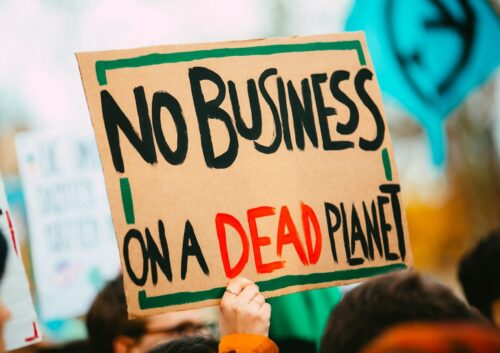
Federal reviewers internally raised red flags about a Biden-era Environmental Protection Agency (EPA) program that awarded billions with minimal oversight to politically connected green groups, according to a Tuesday report published by Protect the Public’s Trust (PPT), a watchdog organization. [emphasis, links added]
Reviewers scrutinized several of the grant applications for the Greenhouse Gas Reduction Fund (GGRF), an EPA program that awarded $20 billion to green groups connected to Democrat donors and insiders, identifying concerns such as “excessive” executive pay, curious financial statements and limited oversight, according to documents first obtained by The Free Press and additional findings uncovered and compiled in PPT’s new report.
The GGRF budget far exceeded any budget in all of EPA’s history, and the PPT report argues that the program was not administered with appropriate levels of oversight.
“For a program that was given more money to hand out than the EPA has ever had in its entire budget, it would be reasonable for the American public to expect that it would have been operated without the slightest hint of conflict or questions about the recipients,” Michael Chamberlain, director of PPT, told the Daily Caller News Foundation.
“Knowing what EPA leadership did following receipt of these critical assessments, one is left to wonder whether they decided wasteful spending while lacking the resources and any genuine plans to prevent abuse and fraud was merely the cost of doing business to avoid leaving it to a potential Trump administration.”
Read: The Shocking Weakness of EPA’s GGRF Award Process.
‘Gold Bars’
The GGRF is being investigated by the EPA’s inspector general, the Department of Justice (DOJ), and the FBI for potential fraud and abuse of taxpayer dollars, and EPA administrator Lee Zeldin has pointed to the program as an example of waste on the Biden administration’s watch on numerous occasions.
Zeldin has often referenced a video covertly recorded by conservative activist group Project Veritas, in which a Biden EPA official likened the agency’s rush to get program funding out the door before the arrival of a new administration to tossing “gold bars off the Titanic.” …snip…
The EPA froze the 129 Citibank accounts where the funds are being held, and in response, several organizations filed lawsuits against the EPA and Citibank, claiming there is no legal justification for withholding the funds and that the EPA acted appropriately in distributing them.
An appeals court intervened to stay a previous court ruling that would have forced the EPA to unfreeze the funds.
Power Forward Communities
Power Forward Communities (PFC), a nonprofit coalition linked to Georgia Democrat Stacey Abrams, was specifically formed to secure taxpayer funding from the GGRF, from which it was awarded $2 billion, the PPT report notes.
Other Democrats linked to the nonprofit coalition include Phyllis Caldwell, the vice chair of Enterprise Community Partners (ECP), an arm of the PFC, as well as the founder and co-chair of PFC, Ari Matusiak, both of whom worked in the Obama administration, the PPT report notes.
Shaun Donovan, CEO and president of ECP, also served in the Obama administration as the director of the Office of Management and Budget.
A review panel examining the application of PFC graded it just above 80% and raised concerns about proposed salaries for executives and incomplete financial statements, according to the PPT report.
Candidates were evaluated “on a steep curve,” and winning applicants achieved no higher than an A-minus score, the PPT report states. …snip…
Climate United Fund
Climate United Fund (CUF) was awarded $6.97 billion and received the highest rating of the mentioned nonprofits at 90.1%, yet reviewers noted that the nonprofit had seemingly unjustified high employee compensation and vague plan descriptions, the PPT report noted.
Two separate reviewers also noted that “exec comp seems high,” and that the large budget could “add risk to a federal award.”
Other aspects of the grant application confused reviewers, as the nonprofit dedicated 2.2% of its budget to “market predevelopment,” which an employee needed “additional clarity.”
When it came to CUF’s plan to decarbonize homes, one federal employee wrote that “these numbers don’t make sense.”
CUF says the application process was robust and that reviewers flagging concerns is a natural part of evaluations like the one the group underwent for the GGRF.
Read full post at Daily Caller



















They really do love that Green Stuff with lots of $$$$$$$$$$$$$$$$$$$$$$ on it
And people wonder where democrats get so much money for election campaigns?
Look no further than the federal bureaucracy and all the hidden schemes that diverts taxpayers hard-earned back to the democrats. Go and fix this DOGE !!!!